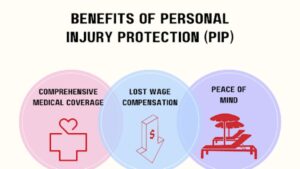INSURANCE
Personal Injury Protection for Luxury Travelers

What happens when unexpected challenges disrupt even the most luxurious travel plans? In the world of luxury travel, every detail matters from first-class flights to exclusive accommodations. High-net-worth individuals expect only the finest experiences.
Yet, even the most meticulously planned trips can face unforeseen setbacks. This is where Personal Injury Protection (PIP) becomes invaluable, providing a critical safety net for removing the comma: “luxury travellers and ensuring that their journey remains as smooth and secure as possible.
Understanding Personal Injury Protection (PIP)
PIP in simple terms is a form of insurance that provides financial coverage for injuries from an accident, regardless of who is at fault. For luxury travelers, PIP forms the most integral part of their comprehensive travel insurance strategy.
Norfolk, Virginia, a city known for its naval base and rich maritime history, faces unique challenges in personal injury cases due to its bustling port and diverse urban landscape. Navigating the complexities of injury claims in such an environment can be daunting. Seeking guidance from a personal injury lawyer in Virginia Beach or a personal injury attorney norfolk can provide invaluable assistance in understanding local laws and ensuring proper protection.
While standard travel insurance policies provide for the basics, PIP goes a step further by addressing the unique needs and concerns of high-net-worth individuals. It ensures that, in the case of an accident, one’s wealthy traveler can still live in style while receiving the best available medical care without any financial burden.
There is often much higher risk and greater stakes than with the average tourist when compared with luxury travelers. Whether it’s exploring distant destinations, taking part in adventurous activities, or even just navigating unknown territories, there’s always the possibility of some sort of accident or injury.
PIP increases safety precautions against such unforeseen dangers that come with the competition, giving one peace of mind and financial security.
Key Coverage Features of PIP
Personal Injury Protection offers a range of benefits tailored to the needs of luxury travelers. Let’s explore the primary coverage features:
1. Medical Expenses
PIP covers medical bills arising from accidents, which is particularly crucial for luxury travelers who may seek treatment at top-tier medical facilities abroad. This coverage can include:
- Emergency medical treatment.
- Hospital stays.
- Surgical procedures.
- Rehabilitation services.
- Prescription medications.
PIP ensures high-net-worth travelers can access top-quality medical care without financial worry.
2. Lost Wages
One of the most significant benefits of PIP for luxury travelers is compensation for lost income due to injuries. This feature is crucial for high earners, as they could face significant financial losses if they cannot work.
PIP typically covers a percentage of the traveler’s lost wages, helping to maintain financial stability during recovery. This benefit can be particularly valuable for entrepreneurs, executives, or professionals whose income may be impacted by an extended absence.

3. Household Services
Luxury travelers often maintain a certain lifestyle that includes various household services. In the event of an injury that prevents them from performing these tasks, PIP can cover the costs of:
- Housekeeping.
- Childcare.
- Meal preparation.
- Other essential household duties.
This coverage ensures that the traveler’s home life remains as comfortable and well-managed as possible during their recovery period.
4. Funeral Expenses
While it’s not pleasant to consider, PIP also provides coverage for funeral expenses in the unfortunate event of a fatal accident. This benefit can alleviate the financial burden on the traveler’s family and ensure that final arrangements align with their wishes and status.
A personal injury attorney Norfolk can help luxury travellers understand how these coverage features apply in specific situations.
PIP in the Context of Luxury Travel
Luxury travelers face unique risks that set them apart from average tourists. These might include higher-value personal property, which is more vulnerable to theft or damage; a greater likelihood of participating in high-risk activities or sports; and even greater monetary exposure in the event of trip interruptions or cancellations.
For travellers departing from or returning to Virginia, consulting with a virginia beach personal injury lawyer can offer insights into how local laws might affect their PIP coverage.
PIP will be instrumental in mitigating these risks with comprehensive coverage tailored to the luxury travel experience. Most especially in planning luxury trips to international destinations where medical standards could be different, It is very important to embed PIP into the travel insurance strategy.
A personal injury attorney norfolk or, at least, a specialised insurance advisor should be consulted to make sure that the selected PIP coverage fits the needs and destinations of the luxury traveller.
State Variations and Requirements
It’s important to note that PIP laws and requirements can vary significantly across different states. Some states require PIP coverage; some don’t. Luxury travelers should be aware of these variations, especially when planning domestic trips.
For 2024, the following states have required PIP coverage: Florida, Hawaii, Kansas, Kentucky, Massachusetts, Michigan, Minnesota, New Jersey, New York, North Dakota, Pennsylvania, and Utah.
For both of these states, luxury travelers will have to make sure they meet the minimum requirements for PIP, even if they have comprehensive policies that insure them for travel.
Consulting with a personal injury attorney Norfolk can provide clarity on how these state-specific requirements might affect your travel plans.
While PIP provides great cover for personal injuries, many times it will be advisable for luxury travelers to supplement it with more specialized travel insurance policies. These can offer additional protections such as coverage for high-value personal belongings, trip cancellation and interruption insurance, emergency evacuation services, and concierge medical services.
Further, combining PIP with high-end comprehensive luxury travel insurance that covers absolutely every travel touch point can give these high-net-worth individuals a very solid safety net.
Selecting the Right PIP Coverage
Choosing the appropriate PIP coverage is important for luxury travelers. Some factors to consider:
Travel Frequency: The more frequent the travel, the higher the coverage limit or the more comprehensive the policy should be.
Destination Risks: Medical facilities and possible hazards at destinations should be considered.
Existing Health Insurance: A look at how your current health insurance interacts with the PIP coverage is essential, especially for international travel.
Income Level: Ensure your lost wage coverage represents what you take home.
Lifestyle Needs: Consider coverage for additional services you may require if injured.
Recommended Luxury Travel Insurance Providers: While the best options will vary depending on your particular needs, some insurance providers known for offering full-featured PIP options as part of their luxury travel policies include AIG Travel Guard, Allianz Global Assistance, Chubb Travel Protection, and MedJet Assist.
Comparing policies and consulting with a personal injury attorney Virginia or an insurance expert to suit each individual’s unique travel profile is highly recommended.
Common Misconceptions about PIP
Despite its importance, there are several misconceptions about PIP that luxury travelers should be aware of:
Myth 1: PIP is the same as health insurance
Reality: While PIP covers medical expenses, it offers additional benefits not typically included in health insurance, such as lost wage compensation and household services coverage.
Myth 2: Wealthy travelers don’t need PIP
Reality: High-net-worth individuals often have more to lose in the event of an accident. PIP provides crucial financial protection that aligns with their lifestyle and earning potential.
Myth 3: PIP is only for car accidents
Reality: While PIP is often associated with auto insurance, many policies offer coverage for various types of accidents that can occur during travel.
Myth 4: Travel insurance makes PIP unnecessary
Reality: PIP complements travel insurance by providing specialized coverage for personal injuries and related expenses. It’s often more comprehensive in its injury-related benefits than standard travel insurance.
Conclusion
Personal Injury Protection (PIP) is an essential safeguard for luxury travelers, providing comprehensive coverage throughout their high-end journeys. By understanding PIP’s core features, meeting state-specific regulations, and selecting the right policy, high-net-worth travelers can enjoy peace of mind and confidence during their trips. For a tailored approach, consulting with A personal injury attorney Norfolk or an insurance advisor can ensure that your PIP aligns perfectly with your travel needs. After all, true luxury lies in traveling without worry, knowing you’re fully protected.
Frequently Asked Questions
How does Traveler’s insurance work?
Traveler’s insurance covers unexpected events during trips, like cancellations, medical emergencies, or lost luggage.
Is there a grace period for Traveler’s insurance payments?
Yes, many travel insurance providers offer a short grace period for late payments, but the duration and terms vary by policy.
Can you cancel Travelers insurance and get a refund?
Yes, you can cancel a Travelers insurance policy and may be eligible for a refund, depending on the policy terms and timing of the cancellation.
INSURANCE
Why It’s Risky to Trust the Other Driver’s Insurance Company Without Legal Advice

Why It’s Risky to Trust the Other Driver’s Insurance Company Without Legal Advice
Insurance companies are not neutral parties; they are businesses that prioritize minimizing payouts. After an accident, the other driver’s insurer may seem helpful, contacting you quickly and offering to settle. However, accepting their assistance without professional guidance can put your rights and compensation at serious risk. It’s often in your best interest to first consult with a Fort Collins car accident lawyer before engaging in any conversation with the opposing insurer.
Their Loyalty Lies Elsewhere
Insurance adjusters may act friendly and sympathetic, but their primary goal is to protect the company’s bottom line, not to prioritize your best interest. The other driver’s insurance company is committed to its policyholder and will look for ways to reduce or deny your claim altogether. This conflict of interest becomes especially dangerous if you are recovering from injuries, facing mounting expenses, or unsure of your legal rights.
Without an attorney’s help, you may inadvertently say or do something that the insurer will later use against you. Even a casual statement like “I’m feeling okay” could be twisted to undermine your injury claim. That’s why speaking with an attorney first is essential.
Quick Settlement Offers Can Undermine Your Claim
One common tactic insurers use is offering a fast settlement. At first, this might seem convenient, especially if you’re facing hospital bills or missing work, but these offers are rarely in your favor. Quick settlements are typically calculated to be far lower than what your claim is actually worth.
These early offers often don’t account for future medical expenses, long-term rehabilitation, lost future income, or emotional distress. Once you accept a settlement, you typically forfeit the right to pursue additional compensation, even if new injuries arise later. Consulting an attorney can help you understand the full scope of your damages before agreeing to any deal.
Recorded Statements May Hurt Your Case
Shortly after the accident, the opposing insurance company may ask you to provide a recorded statement. They might claim it’s a routine part of the process or that it’s necessary to move your claim forward. However, providing such a statement without legal guidance is risky.
Insurance companies are skilled at asking questions that may seem harmless but are designed to prompt responses that weaken your case. For example, they may ask you to speculate about the cause of the accident or the extent of your injuries. Any inconsistencies between your recorded statement and future medical evaluations can be used to dispute your credibility.
You Might Not Know the Full Value of Your Claim
Without legal training or experience, it’s difficult to calculate what your claim is truly worth. Several factors contribute to determining fair compensation, including pain and suffering, future medical expenses, property damage, and lost earnings. Most individuals aren’t aware of all the elements that can be included in a claim, and insurance companies use that lack of knowledge to their advantage.
A Fort Collins car accident lawyer can evaluate the details of your accident, estimate the true value of your damages, and negotiate aggressively on your behalf. With their help, you’re more likely to receive a settlement that reflects your actual losses, not just the insurer’s first offer.
Conclusion
Trust the other driver’s insurance company without legal counsel at your own risk, as it may result in lost compensation, missteps, and unnecessary stress. Their loyalty lies with their own insured, not with you. To protect your rights and ensure you receive the full compensation you deserve, it’s wise to speak with a Fort Collins car accident lawyer as early as possible in the claims process.
INSURANCE
Beyond the Fine Print: Understanding How Policyholders Can Detect Signs of Insurance Bad Faith

In a world where insurance plays a pivotal role in safeguarding your financial well-being, understanding the nuances of your policy becomes paramount. Whether looking for a New Mexico insurance bad faith lawyer, this article delves into the complexities of detecting insurance bad faith, a crucial skill for policyholders like you who seek to protect their interests.
Insurance Bad Faith: What Policyholders Need to Know
Insurance bad faith occurs when an insurer violates its obligations under the policy, acting in a manner that’s unjust to the policyholder. When purchasing insurance, you enter into a contract expecting the insurer to act in good faith—a legal duty to deal fairly and honestly.
Key Indicators of Bad Faith
Recognizing insurance bad faith is crucial. Some indicators include:
Unreasonable Delays: If an insurer delays processing a claim without valid reasons, it may be acting in bad faith.
Unjust Denials: Claims turned down without a clear, justified explanation could signal misconduct.
Inadequate Investigation: A superficial examination of claims can also point to bad faith.
Identifying Red Flags: Signs of Bad Faith in Insurance Claims
Delayed Responses and Unnecessary Requests
A standard indicator of bad faith in insurance claims is the delay in communication from the insurer. If you notice prolonged silence or repeated requests for information already provided, it might signal avoidance or stalling tactics. Insurers are expected to process claims promptly; unexplained delays could signify deeper issues.
Questionable Denials and Policy Misinterpretations
Another red flag is a sudden, unexplained denial of your claim or an interpretation of policy terms that seems inconsistent with standard practice. If an insurer provides vague or shifting reasons for denying a claim, these might be attempts to avoid rightful payouts. Reviewing the policy carefully and seeking clarification can help identify any misinterpretations.
Low Settlement Offers
Receiving a settlement offer that seems disproportionately low compared to the claim can also suggest bad faith. Insurers might minimize payouts by undervaluing claims. It’s beneficial to document all losses comprehensively and consider consulting an expert to evaluate the fairness of the offer.
Common Tactics Used by Insurers to Deny Legitimate Claims
Delaying the Claims Process
One tactic often employed by insurance companies is to unnecessarily delay the claims process. By creating prolonged waiting periods, insurers may hope that claimants will become frustrated and either drop the claim or accept a lower settlement offer. These delays can manifest in the form of requesting excessive documentation or repeatedly transferring the claim to different departments.
Misinterpreting Policy Language
Another common strategy involves the deliberate misinterpretation of policy language. Insurers might assert that certain losses are not covered due to ambiguous policy terms. This tactic relies on the complexity of insurance jargon, which can easily confuse policyholders. By challenging these interpretations, you can ensure that your claim receives the fair consideration it deserves.
Undervaluing the Claim
Insurers also frequently undervalue legitimate claims by offering settlements significantly lower than the claim’s worth. They might base these offers on questionable assessments or outdated market values. It’s crucial to have third-party appraisals or other evidence to counter these lowball offers, ensuring you receive a fair settlement.
Legal Recourse: What to Do if You Suspect Bad Faith Practices
Recognize the Signs
Detecting bad faith practices involves awareness of certain red flags in your insurer’s behavior. These may include unexplained delays, denial of valid claims without reasonable justification, or offering insufficient settlement amounts. Understanding these indicators is crucial in taking timely action.
Document Everything
Maintaining detailed records can significantly bolster your position. Keep all correspondence, emails, and notes of phone conversations with your insurer. Document every interaction thoroughly, focusing on dates, times, and the content discussed.
Seek Professional Advice
Consulting with a legal expert specializing in insurance law can be invaluable. They can help decipher complex policy language, determine if your rights have been violated, and guide you on possible remedies, contributing to a more informed decision-making process.
Protecting Yourself: Tips for Policyholders to Avoid Insurance Bad Faith
Know Your Policy
Understanding your insurance policy is crucial. Thoroughly review the document, paying special attention to the terms, conditions, and exclusions. If anything seems unclear, reach out to your insurance agent for clarification. This knowledge empowers you to recognize when your insurer’s actions may contradict the agreement.
Document Everything
Maintain a meticulous record of all communications with your insurer—phone calls, emails, and letters. Documentation can serve as evidence if you suspect bad faith practices, such as undue delay or denial of valid claims.
Be Proactive
Stay informed about your rights as a policyholder. Regularly reviewing state insurance regulations and seeking legal advice when necessary can provide significant leverage. Taking these steps helps ensure fair treatment, safeguarding your coverage and peace of mind.
Final Thoughts
In your journey to safeguard your interests as a policyholder, understanding the nuances of insurance bad faith is imperative. Whether looking for a New Mexico insurance bad faith lawyer, by recognizing the subtle signs—such as unreasonable denial of claims, undue delays, or inadequate investigations—you empower yourself to challenge unjust practices effectively.
INSURANCE
The Standard Fire Insurance Company: Comprehensive Coverage for Your Protection

The Standard Fire Insurance Company has long been a trusted name in safeguarding homes and businesses against fire-related risks. With fires causing billions in damages annually, securing reliable fire insurance is not just a precaution—it’s a necessity. This article explores the company’s offerings, benefits, and how it compares to industry standards, helping you make an informed decision for your property’s safety.
Understanding The Standard Fire Insurance Company
Founded on principles of reliability and customer trust, The Standard Fire Insurance Company specializes in fire and allied perils coverage. Unlike generic insurers, it focuses on mitigating fire risks with tailored policies that address residential, commercial, and industrial needs.
Key Features of Their Policies
Fire Damage Coverage: Protects against structural and content losses due to fires.
Additional Perils: Often includes lightning strikes, explosions, and smoke damage.
Temporary Housing Support: Covers living expenses if your home becomes uninhabitable.
Fast Claims Processing: Streamlined procedures to ensure timely payouts.
Why Choose The Standard Fire Insurance Company?
Selecting the right insurer can mean the difference between swift recovery and financial strain. Here’s why many policyholders prefer The Standard Fire Insurance Company:
1. Financial Stability & Trustworthiness
The company maintains strong financial health, ensuring it can honor claims even during widespread disasters. Industry experts recognize its consistent performance in claim settlements.
2. Customizable Policies
Every property has unique risks. Whether you own a high-rise apartment or a small business, The Standard Fire Insurance Company offers flexible plans that adapt to your needs.
3. Competitive Premiums
Despite its specialized focus, the company provides cost-effective premiums without compromising coverage. Discounts for safety installations (like smoke detectors) further reduce costs.
Comparing The Standard Fire Insurance Company to Industry Standards
To help you evaluate its offerings, here’s a comparison table highlighting five critical features:
| Feature | The Standard Fire Insurance Company | Industry Average |
|---|---|---|
| Cost | Competitive premiums with discounts | Higher for similar coverage |
| Efficiency | Fast, hassle-free claims processing | Often delayed |
| Ease of Use | Simple policy management & renewals | Complex paperwork |
| Scalability | Customizable for all property types | Limited flexibility |
| Additional Benefits | Covers temporary housing & debris removal | Rarely included |
How to Maximize Your Fire Insurance Benefits
Simply having a policy isn’t enough—knowing how to leverage it ensures full protection. Follow these steps:
Conduct a Risk Assessment – Identify fire hazards in your property.
Document Valuables – Maintain an inventory for smoother claims.
Review Annually – Update coverage to reflect property changes.
Final Thoughts
The Standard Fire Insurance Company stands out for its specialized, reliable, and customer-centric approach to fire protection. By understanding your risks and choosing a policy that aligns with your needs, you can secure peace of mind against unforeseen disasters.
FAQs
What Does The Standard Fire Insurance Company Cover?
The company covers fire damage, lightning strikes, explosions, and often extends to smoke and water damage from firefighting efforts.
How Are Premiums Calculated?
Factors include property location, construction materials, fire safety measures, and coverage limits.
Does It Cover Wildfires?
Most policies include wildfires, but high-risk areas may require additional endorsements.
How Long Does a Claim Take?
Typically, claims are processed within 30 days, depending on documentation.
Can I Bundle Fire Insurance with Other Policies?
Yes, bundling with homeowners or business insurance often reduces costs.
What’s Not Covered?
Intentional fires, war-related damages, and neglect-related losses are usually excluded.

 Cartoon6 months ago
Cartoon6 months agoUnlocking the Potential of Nekopoi.care: A Comprehensive Guide

 Game2 years ago
Game2 years agoExploring Aopickleballthietke.com: Your Ultimate Pickleball Destination

 BUSINESS2 years ago
BUSINESS2 years agoUnraveling the Mystery of 405 Howard Street San Francisco charge on Credit Card

 BUSINESS6 months ago
BUSINESS6 months agoWhat Companies Are In The Consumer Services Field

 HOME IMPROVEMENT2 years ago
HOME IMPROVEMENT2 years agoVtrahe vs. Other Platforms: Which One Reigns Supreme?

 HEALTH2 years ago
HEALTH2 years agoWegovy: Important Information and Prescription Instructions

 ENTERTAINMENT1 year ago
ENTERTAINMENT1 year agoUnderstanding Bunkr Album: A Comprehensive Guide

 ENTERTAINMENT2 years ago
ENTERTAINMENT2 years agoThe Ultimate Guide to MP3Juices: Free Music Download
















